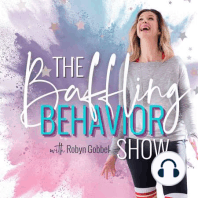54 min listen

Ep. 33: Bethany Saltman with A Mother's Journey into the Science of Attachment
Ep. 33: Bethany Saltman with A Mother's Journey into the Science of Attachment
ratings:
Length:
57 minutes
Released:
Jun 1, 2021
Format:
Podcast episode
Description
Bethany Saltman is the author of part memoir part biography Strange Situation- A Mother’s Journey into the Science of Attachment. Bethany is a professional researcher, writer, and longtime Zen student who went searching for what she felt was missing when she was a new mom. Like myself, Bethany discovered Dr. Sears’ The Baby Book on attachment parenting when she was pregnant with her now 15-year-old daughter (my son is 15 and almost the exact same age!) and had expectations about what motherhood and parenting was going to look like: a blissful time where she enjoyed the natural awakenings of maternal instinct.Which did not happen. Bethany remembers that she wasn’t patient with her daughter. She didn’t feel very loving toward her. And ultimately she felt broken because Dr. Sears had promised in his book that attachment parenting was easy because it ‘feeds on a mother’s natural intuition.’ Bethany stated she was doing her best but also doing a lot of things wrong as a mom- and couldn’t figure out why. So she went on a deep-dive journey into exploring the science of attachment, in particular Mary Ainsworth and The Strange Situation. Bethany’s exploration into the science of attachment led her to the conclusion that behaviors have actually very little to do with attachment. There isn’t a checklist. Raising a child with secure attachment isn’t about breastfeeding or co-sleeping. It has to do with how you think and feel about your attachments and how this is transmitted from mind to mind, generation to generation. I can't wait to hear what you think about this interview with Bethany!!!You can find Bethany on instagram @Bethany_Saltman or on her website at www.BethanySaltman.com. Grab her book Strange Situation wherever books are sold but try to get it from your local bookstore ;) Don't forget to subscribe to Parenting after Trauma with Robyn Gobbel!Then head over to my website and get the free, 45 minute masterclass What Behavior Really Is and How to Change It at www.RobynGobbel.com/masterclassWhile you're there, be sure to put your name on the waiting list for The Club- a virtual community of connection and co-regulation for parents of kids impacted by trauma (and the professionals who support them). CLICK HERE to read about The Club and join the waitlist for the next time we welcome new members*****Not sure where to start? With 100 episodes, it's hard to know what episodes to listen to first!The START HERE private podcast takes the guess-work out. I curated the 10 episodes I think you should listen to first. Because it's a special private podcast, It's only available by invitation- so head over to RobynGobbel.com/StartHere to get yours. You'll then be able to listen in whatever podcast player you use! *******The Club is a virtual community for the families of kids with big, baffling behaviors and the professionals who support them. https://robyngobbel.com/theclubApplications for the 2023 cohort of Being With ~ a year-long immersive and holistic program for parenting professionals ~ are now open! https://robyngobbel.com/beingwith
Released:
Jun 1, 2021
Format:
Podcast episode
Titles in the series (100)
Jessica Sinarski on Shifting the Paradigm- for Everyone! by The Baffling Behavior Show {Parenting after Trauma}